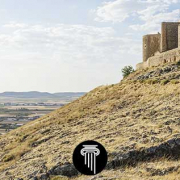Inheritance in Spain When There Is No Will
If you are a beneficiary of Inheritance in Spain and there is no Spanish Will, there are several things you should take note of. As a matter of fact, without a will Inheritance does not prevent assets from being passed on to heirs or the hereditary estate. This article will go through the basics of what you need to do and what you can expect.
Content
What documents do you need to start a Spanish Inheritance?
The two most important documents to start an Inheritance in Spain are the deceased’s death certificate and in case there is one, the Will. Next, the beneficiaries need to have their documents in order. The complete list of documents is:
- Passports (heirs and deceased)
- Fiscal number (NIE)
- Power of attorney from heirs
- Bank statements that must be up-to-date
- Death Certificate
- Power of attorney
- List of Assets and Debts
The documents must be in Spanish (translated by a sworn translator). If the certificates are not written in Spanish, they must be translated and/or apostilled or legalized.
To record this Inheritance Title, a file known as the Declaration of Heirs must be made before a competent Notary (last domicile or habitual residence, where most of the assets are located, or the place where he or she died).
Honoring the Inheritance Law
When a person dies without a will, the Spanish Inheritance Law states which are his heirs (according to article 9 of the Spanish civil code). The law typically depends on the country in which the person resided at the time of death.
For example, if an American national dies while being a resident in Spain, his heirs will be decided according to Spanish law. The same would apply to any other foreigner dying in Spain.
On August 17, 2015, laws changed for EU citizens. Now European citizens in Spain and other EU countries can use either their own country’s law or that of their residency in Spain to direct their final wishes.
Get help with your Inheritance in Spain from a professional, contact SpainDesk.
What happens to the Inheritance when there is no Will
When you are inheriting assets according to the National Spanish Law (article 930) without a Will, the sequence of Inheritance goes downwards (children and grandchildren, upwards (parents and grandparents), in the absence of these, the spouses, and after these the siblings or half-siblings, leaving in last place the nephews and nieces and the Spanish state.
1. Inheritance for the descendants and a spouse
If the deceased was married and left a widow or widower, they will be entitled to the usufruct of a third of the Inheritance (a third of improvement).
The whole Inheritance of the deceased will be divided into equal parts over the descendants and their lineage. For example, with children and three grandchildren, one-third will go to one child, one-third will go to the other child, and one-third will go to the grandchildren.
The grandchildren and other descendants will inherit by right of representation. Children and their descendants succeed their parents and other ascendants without distinction of sex, age or affiliation.
2. Inheritance for the ascendants and spouse
If the deceased has only ascendants (parents or grandparents) and a spouse, the spouse will inherit the usufruct of the estate’s 50%, with the remainder going to the parents. The beneficiaries will be the immediate ascendants and grandparents if there are no parents.
The father and mother will inherit equally. In the absence of a father and a mother, the closest ascendants in degree will succeed. If there are several ascendants of the same degree belonging to the same line, they will divide the Inheritance by heads.
3. Inheritance for the spouse
When someone is married before they die, their spouse has the right to keep at least half of the property they own together if there are no ascendants or descendants. The remaining 50 percent will be shifted to the estate.
4. Inheritance for the brothers and sisters
In case there is no spouse or descendants, the brothers and sisters will inherit the estate in equal parts.
5. Inheritance for relatives
If there isn’t a spouse, brothers or sisters, the other relatives will inherit the property. These include nieces and nephews until the fourth lineage.
6. No Family
The State would be granted administration of the estate only if no collaterals exist (up to the fourth degree).

Understanding your personal situation
Typically a Spanish Inheritance lawyer will help you understand how the Inheritance process works and your rights. We can assist you with the probate process and paying the Inheritance tax in Spain. The timeline consists of:
- Speaking with our Inheritance lawyer
- Creating an understanding of your situation
- Understand the laws surrounding your case
- Supporting you through the initial probate process
- Filling out any necessary paperwork
- Settle any debts or disputes that may arise
- Paying any inheritance taxes that may be owed
When should the Inheritance be completed?
Inheritance in Spain can be a lengthy process, and the rule is that the Inheritance in Spain process should end within six months.
Not accepting an Inheritance
You can accept or decline an Inheritance when you are in the heirship. In other words, you will have no rights or obligations regarding the estate if you reject it, and you will not be responsible for the decedent’s debts. If you accept the Spanish Inheritance, you’ll be taking on all of the responsibilities and rights that go with it.
There is a way to accept an Inheritance under certain conditions. This implies that you will only assume the obligations and responsibilities of the estate if the deceased’s debts are first paid off. This might be a viable option if you’re concerned about inheriting any debts. You need to undergo a legal process to accept the estate in this way formally.
Get help with the Spanish Inheritance Process
When you lose a loved one, you might not want to worry about dealing with the legal process of Inheritance, especially when it is in a foreign country. Accordingly, our team of experienced Inheritance Lawyers in Spain can help make this process as smooth and stress-free as possible. We will work with you to understand your rights and ensure that you receive the Inheritance you deserve. Contact us today to get assistance.
Disclaimer: Information on this page may be incomplete or outdated. Under no circumstances should the information listed be considered professional legal or financial advice. We highly recommend seeking guidance from a legal or financial expert if you lack extensive knowledge or experience dealing with any of the procedures outlined in these articles.








